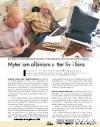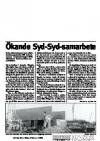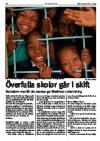Afrika på fel spår : utvecklingens och biståndets kris i ett allt fattigare Afrika
| Upphovsperson: | Vilby, Knud |
|---|---|
| Utgivare: | Nordiska Afrikainstitutet | Uppsala : Nordiska Afrikainstitutet |
| År: | 1984 |
| Ämnesord: | Tanzania, Kenya, East Africa, Zambia, Southern Africa, Economic recession, Development aid, Development projects, Aid evaluation, Political science, Statsvetenskap |




